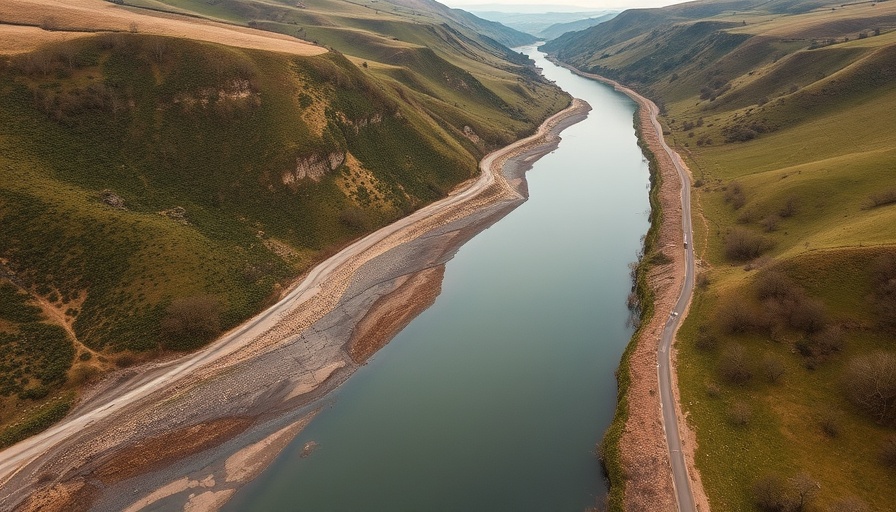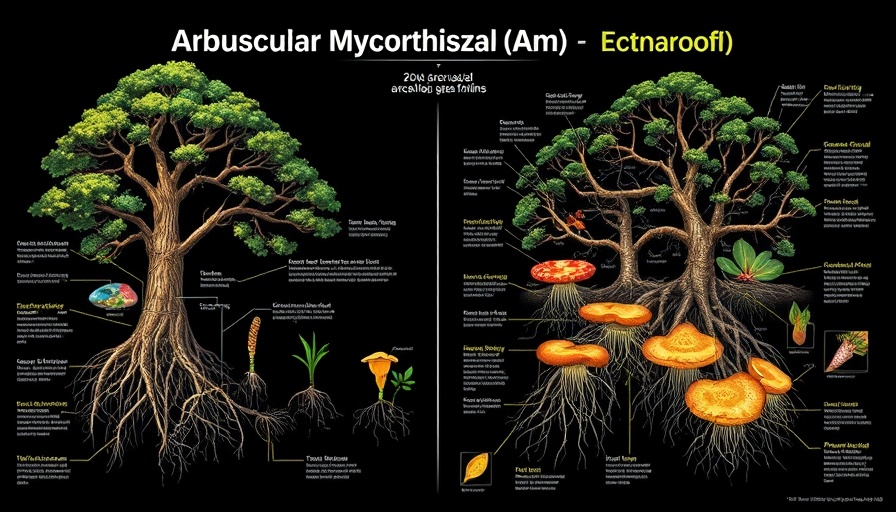
The Looming Drought Crisis in the UK: What You Need to Know
As the UK faces one of its driest springs in over six decades, the alarming drop in river levels raises critical concerns about an impending drought. Recent reports indicate that rivers like Mourne, Eden, English Tyne, Conwy, and Welsh Dee have reached unprecedented lows, stirring apprehension among farmers, environmentalists, and community leaders alike.
The data from the UK Centre for Ecology & Hydrology (UKCEH) paints a stark picture: just 43% of average rainfall was recorded in March, bringing to the forefront the devastating effects of climate change compounded by inadequate water infrastructure.
Understanding Mechanisms of Drought
Climate experts have long warned that prolonged periods of less rainfall can severely impair water supplies. The UKCEH forecasts continued low river levels into the summer, exacerbating concerns over agricultural irrigation and drinking water supplies. Unfortunately, the country has not built a new water reservoir in 30 years, leading many to rely heavily on rivers.
As farmers like Nick Deane in Norfolk highlight, water rationing has become a necessary practice. “We have to ration our water and decide which areas we are going to put that water on in order to keep the crops growing,” Deane told BBC News. The intersection of decreased rainfall, increased temperatures, and an aging infrastructure sets the stage for potential catastrophic agricultural outcomes.
Linking Low River Levels to Industrial Practices
The roots of the crisis extend deeper, reflecting a mix of corporate negligence, regulatory void, and environmental oversight. James Wallace, CEO of River Action UK, laid bare a painful truth: “This crisis was avoidable. But thanks to corporate greed and regulatory complacency, our reservoirs are running dry,” he lamented, highlighting the need for systemic change.
While individuals face potential fines for hosepipe violations, the true culprits appear to evade accountability, leaving ordinary citizens to shoulder the environmental costs born of mismanagement. The interdependence of human activity and natural ecosystems serves as a stark reminder of our responsibility towards sustainable water usage.
The Global Context of Water Scarcity
As the drought conditions unfold, the European Commission has placed large swathes of the region under drought watch, emphasizing a trend that may soon extend beyond the UK, impacting agriculture, energy generation, and transportation systems across Europe. A collective awareness of water scarcity, coupled with the responsibility of sustainable consumption, is essential.
With vegetation struggling under stress and rising wildfire incidents, the need to address these environmental challenges is paramount. The first four months of 2025 saw the UK outpace several previous years for land burned due to wildfires, showing how interconnected our environments really are.
What Can You Do to Address the Crisis?
With government officials considering water use restrictions, community awareness and engagement in sustainable water practices have become ever more critical. As individuals, we can make conscious efforts to conserve water in our daily lives—small changes can lead to significant impacts. Simple steps such as minimizing lawn watering, fixing leaks promptly, and only using necessary water for gardening help alleviate the drought's pressure.
By sharing information and advocating for sustainable policies, we can also create ripples of change in our communities, emphasizing the importance of maintaining our ecosystems for the generations to come.
The Time to Act is Now
As we draw closer to the summer months, remaining vigilant and proactive in conserving water can help mitigate the effects of this drought crisis. Whether you are a concerned citizen, a farmer navigating scarce resources, or an environmental advocate, every voice matters in this urgent dialogue. Engage with your local representatives about water management initiatives, and encourage policies that protect our most precious resource.
 Add Row
Add Row  Add
Add 



Write A Comment